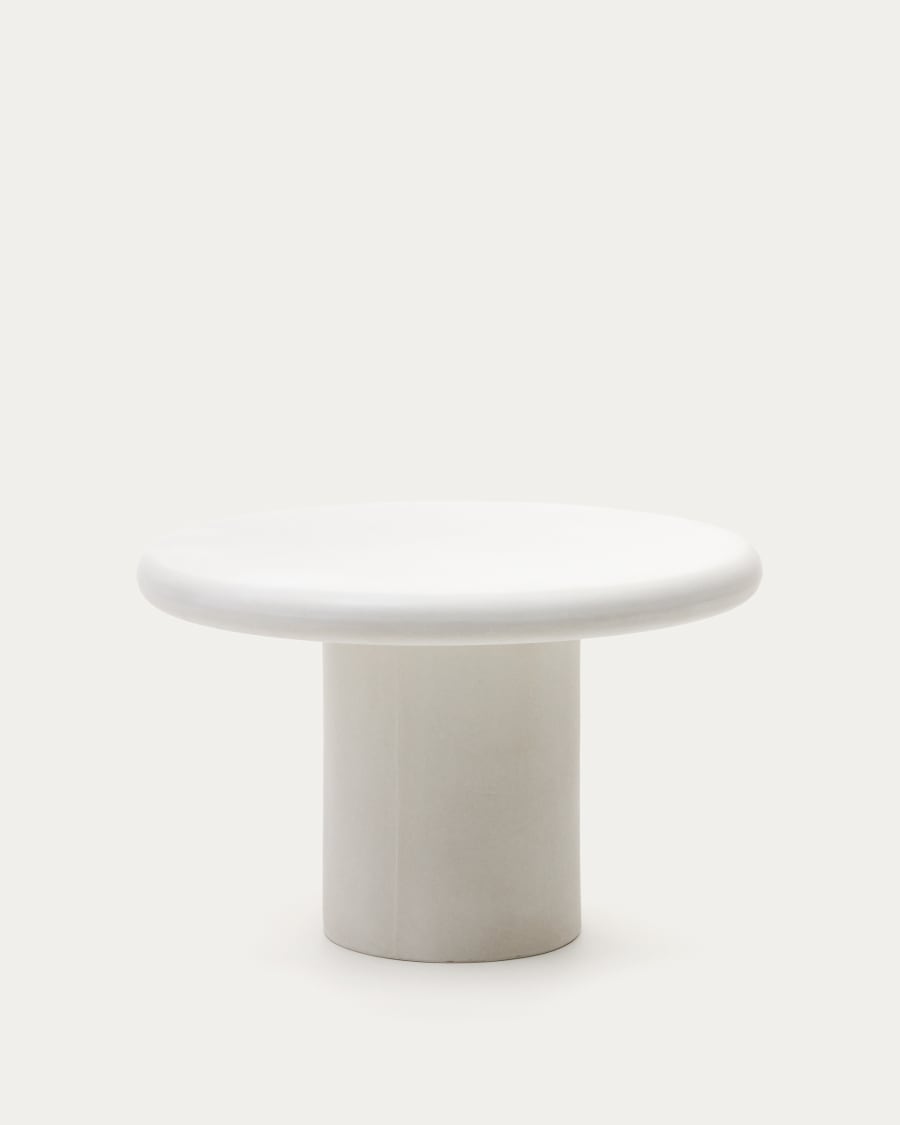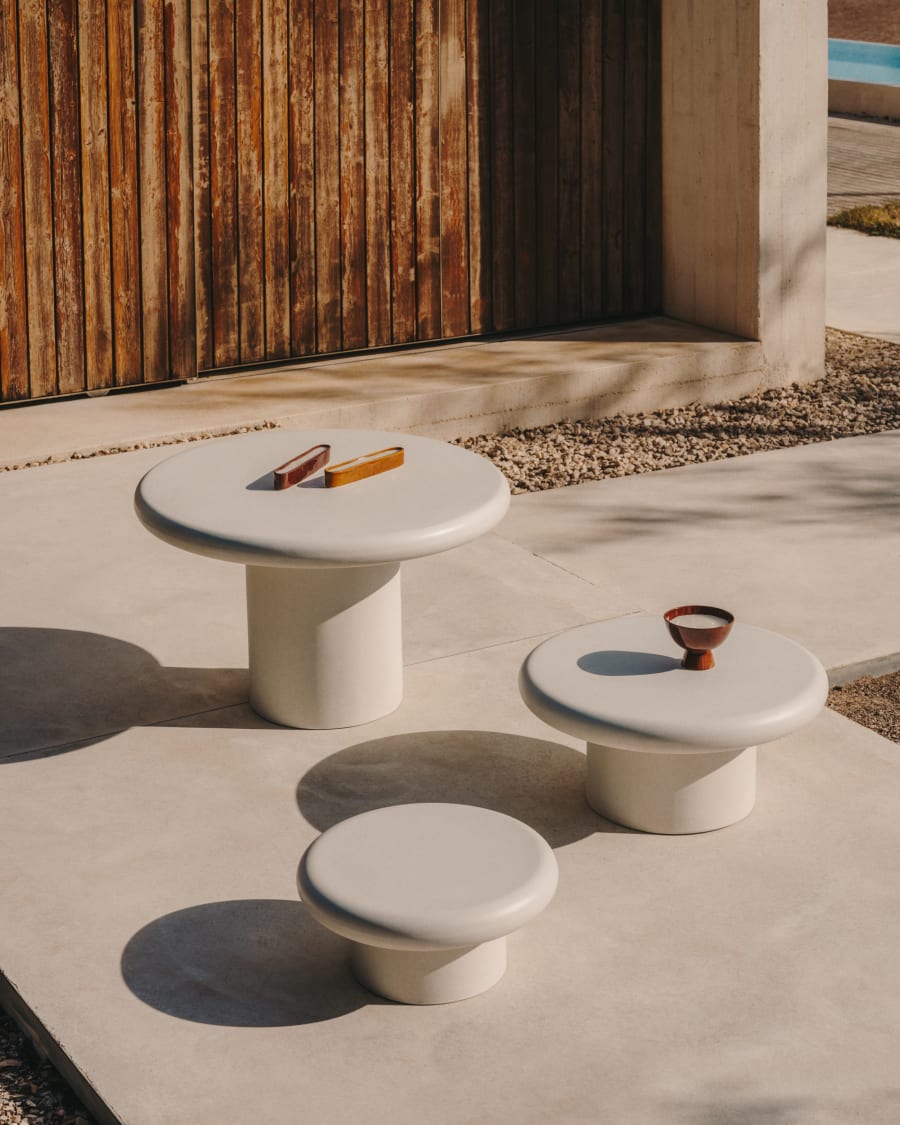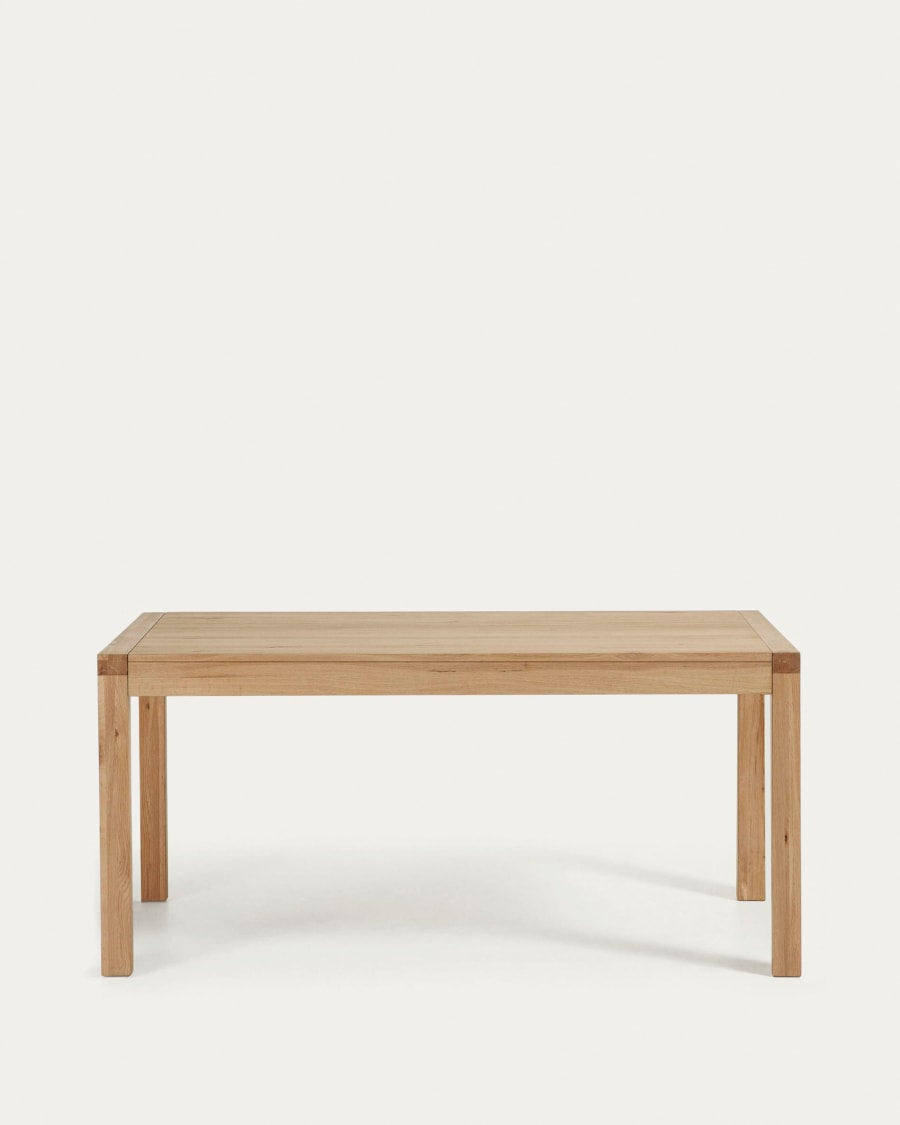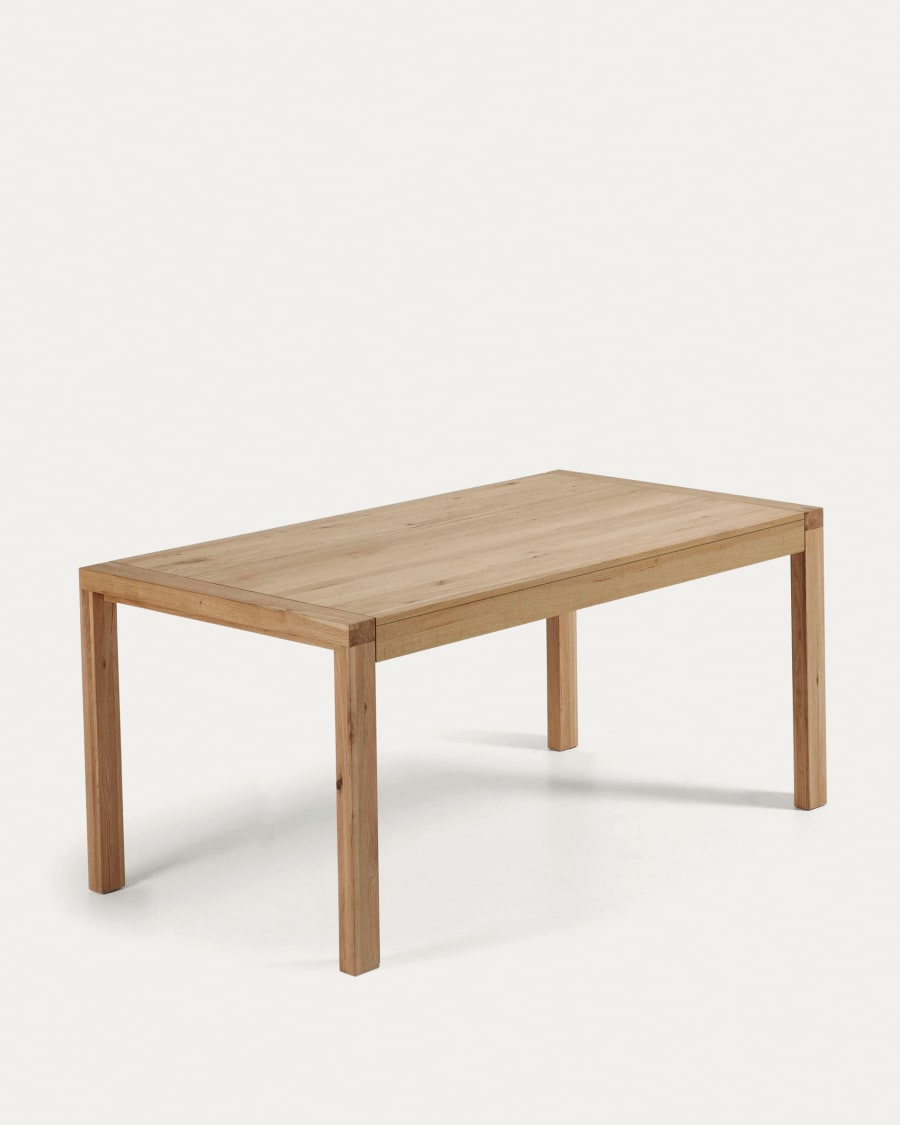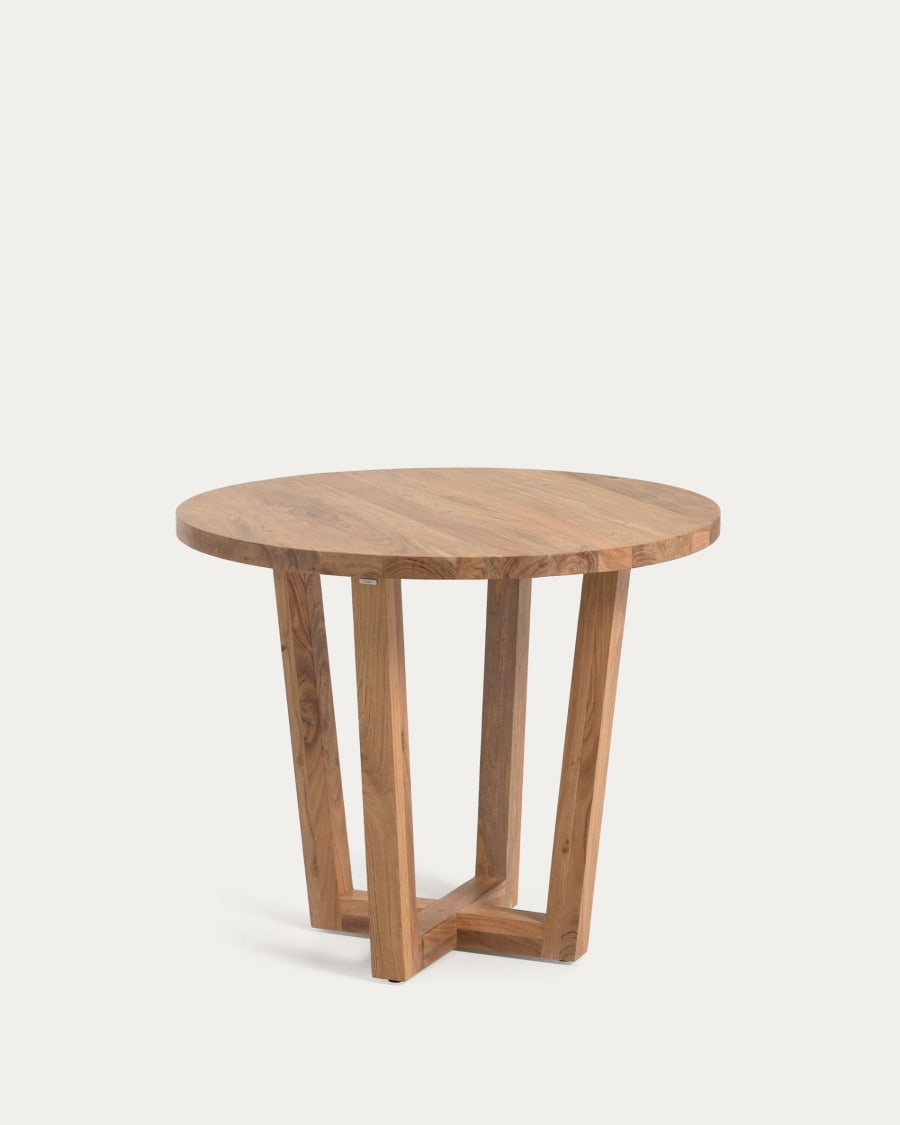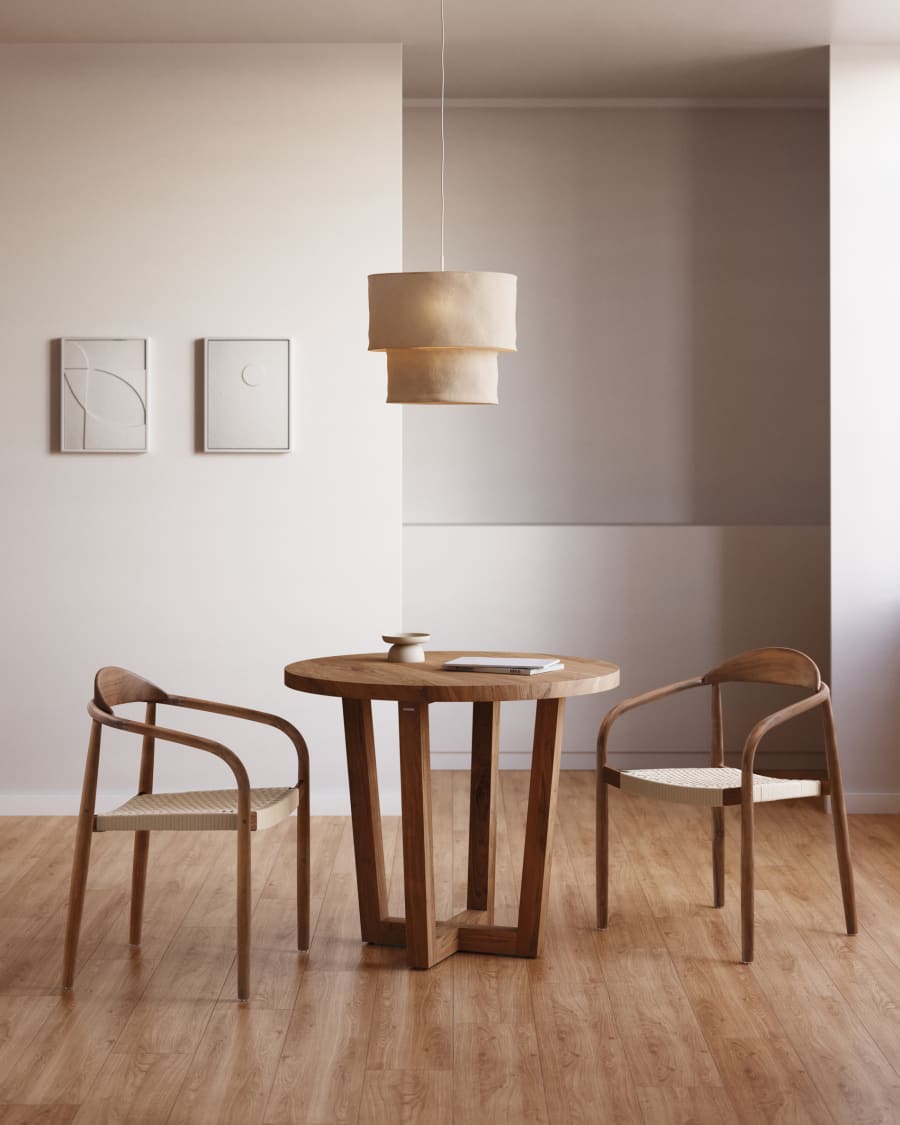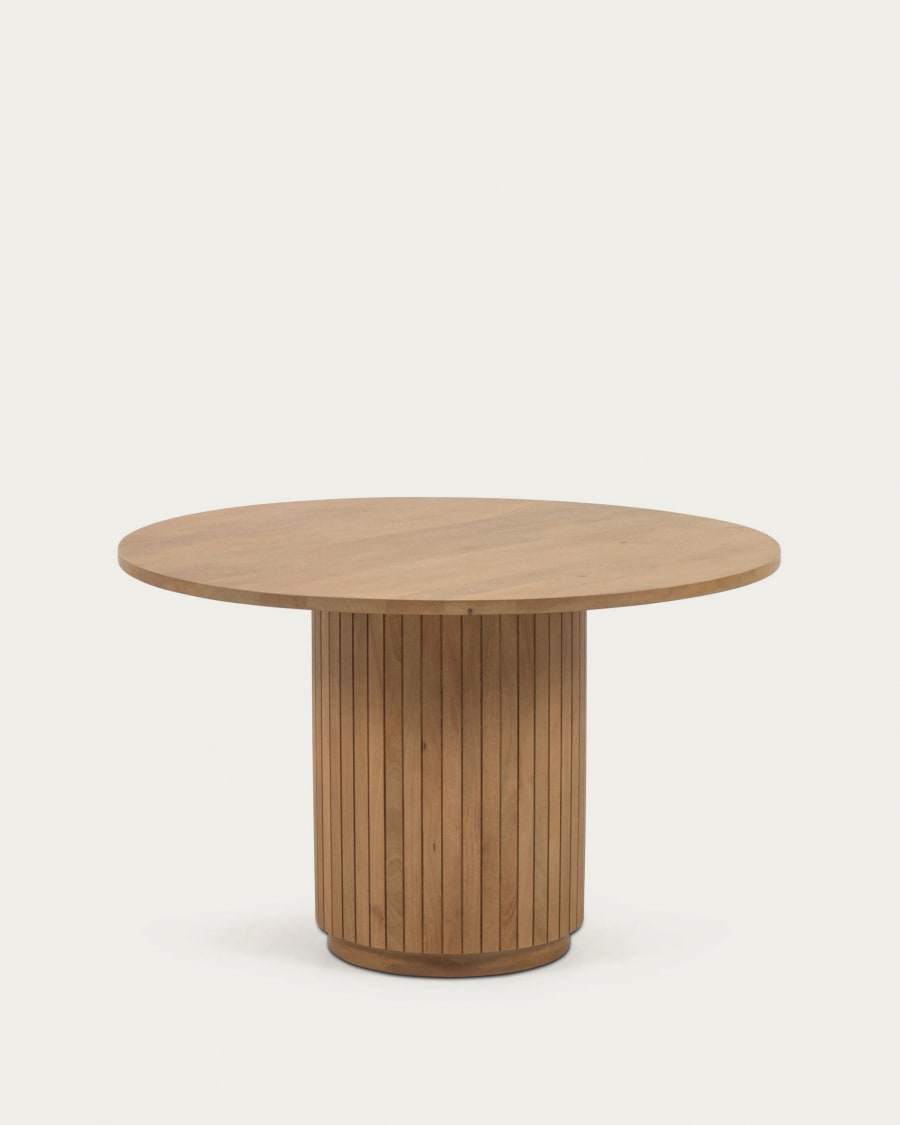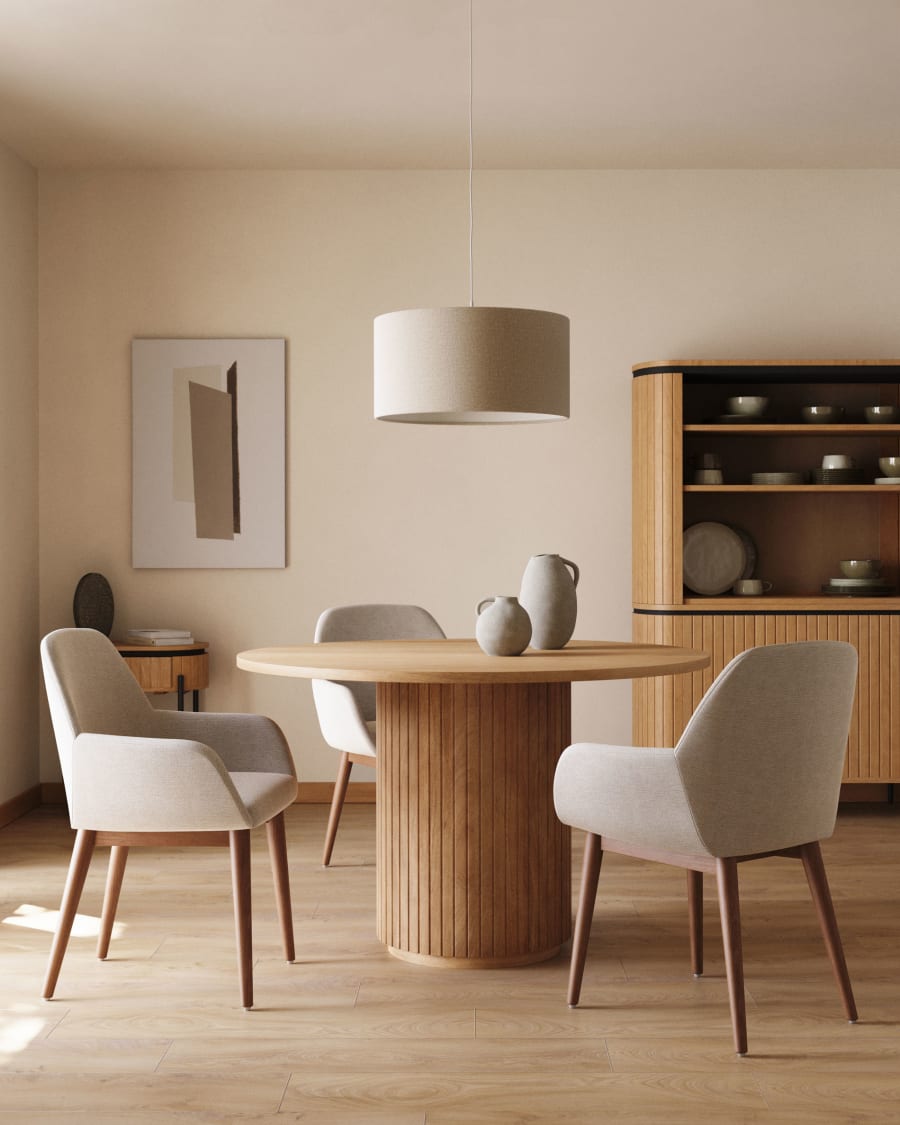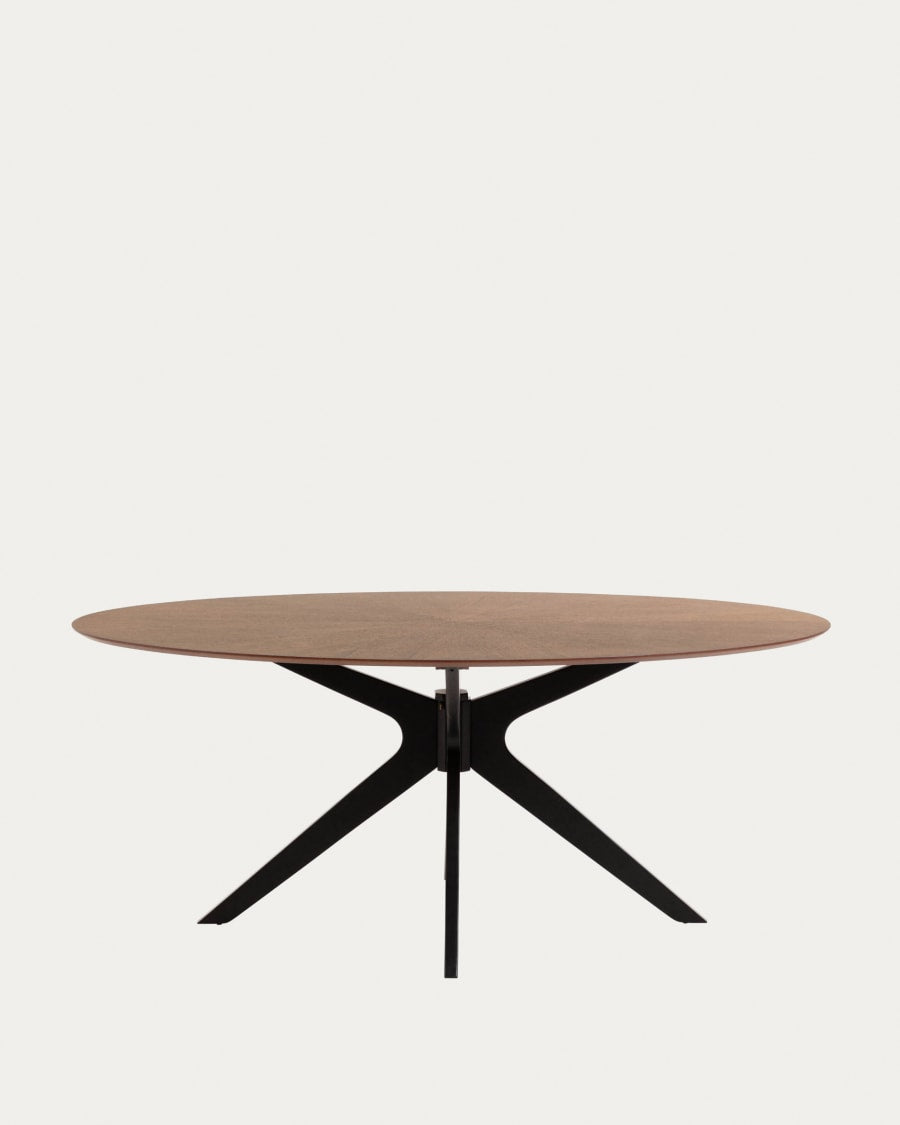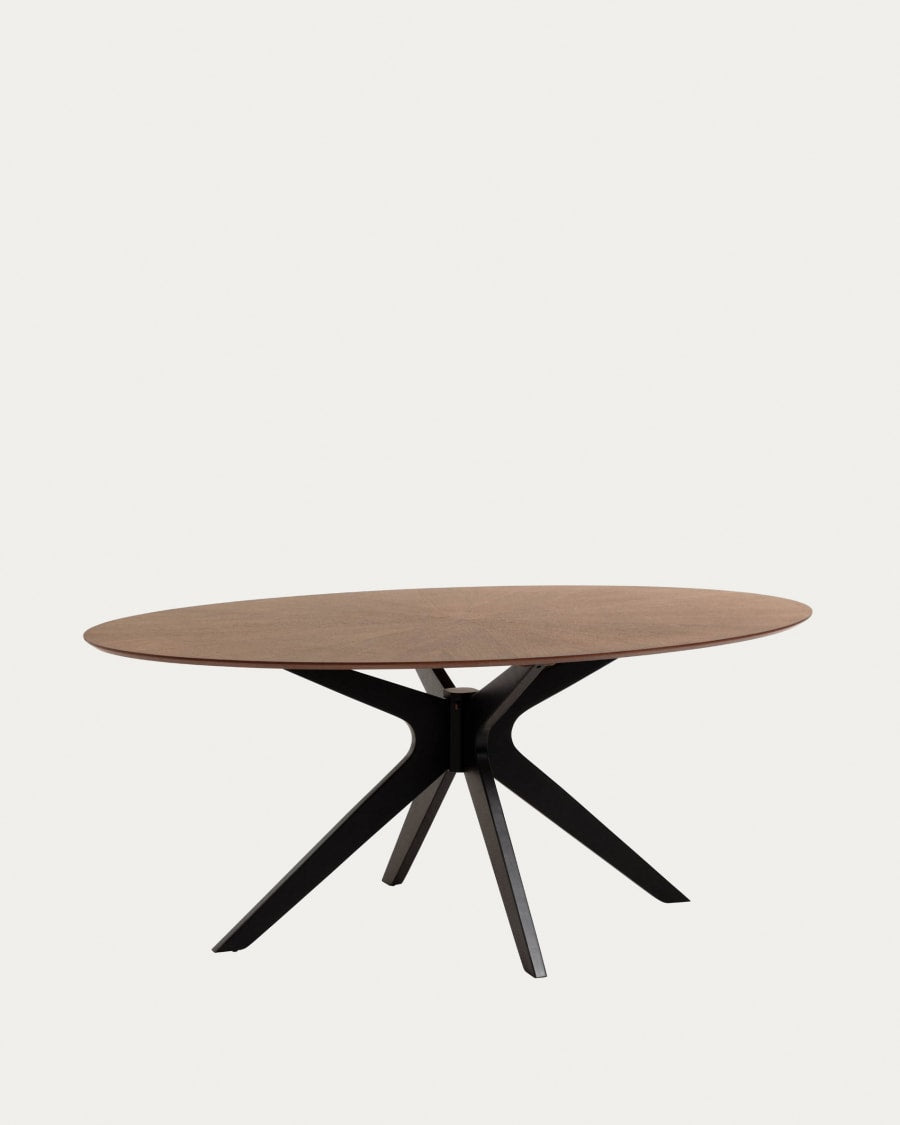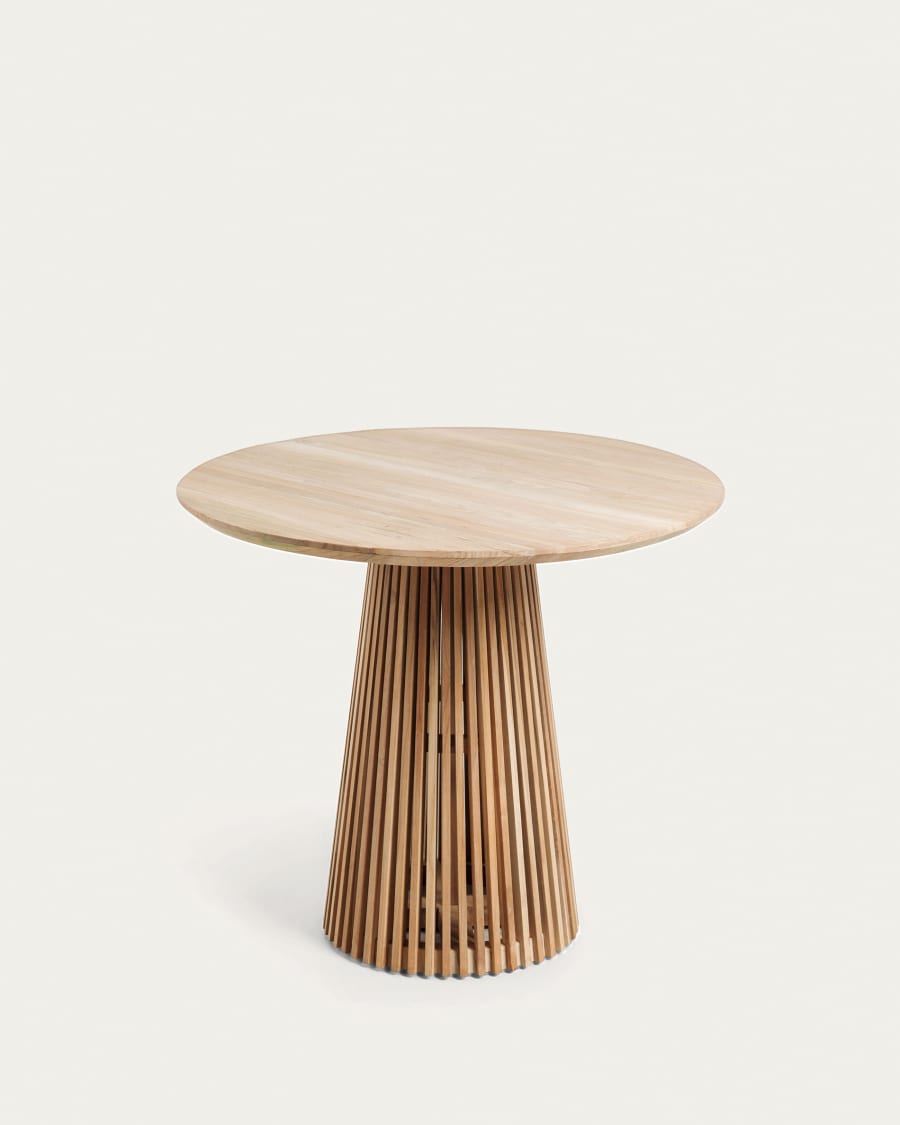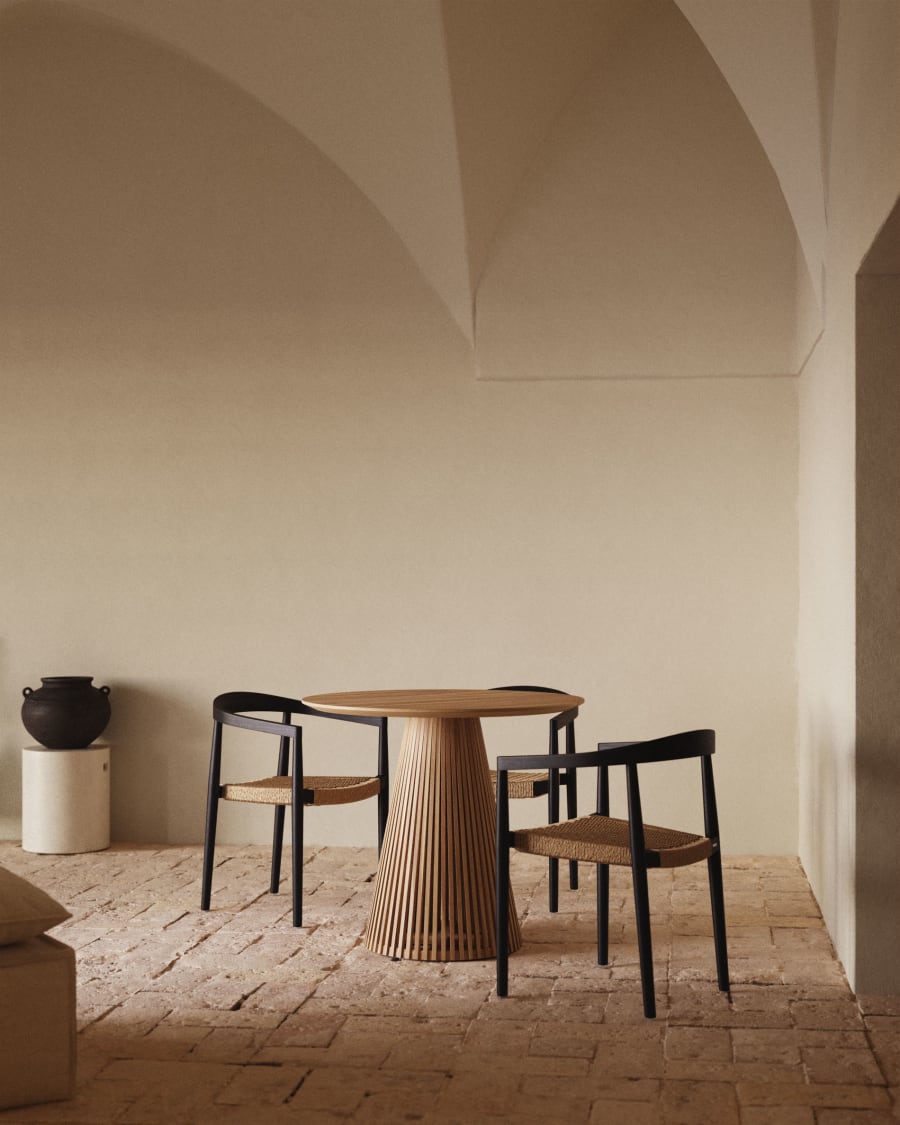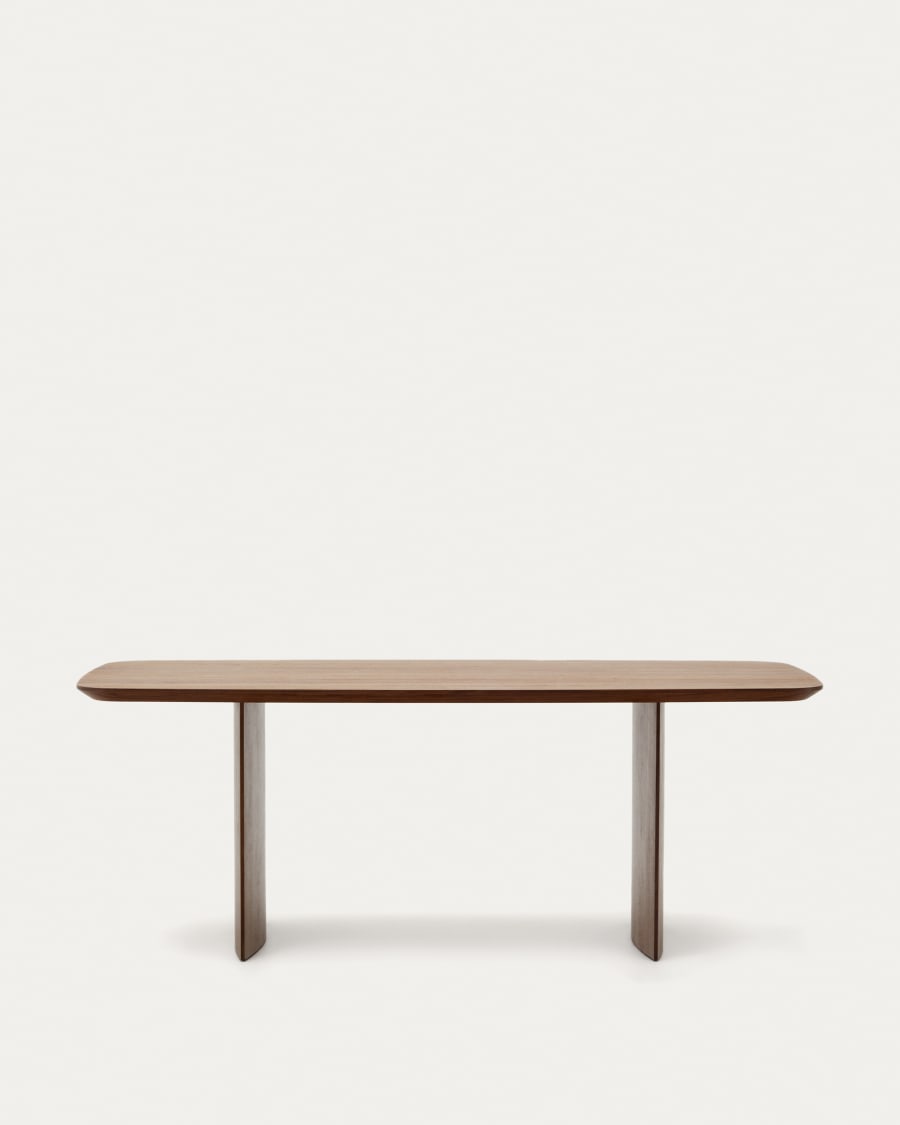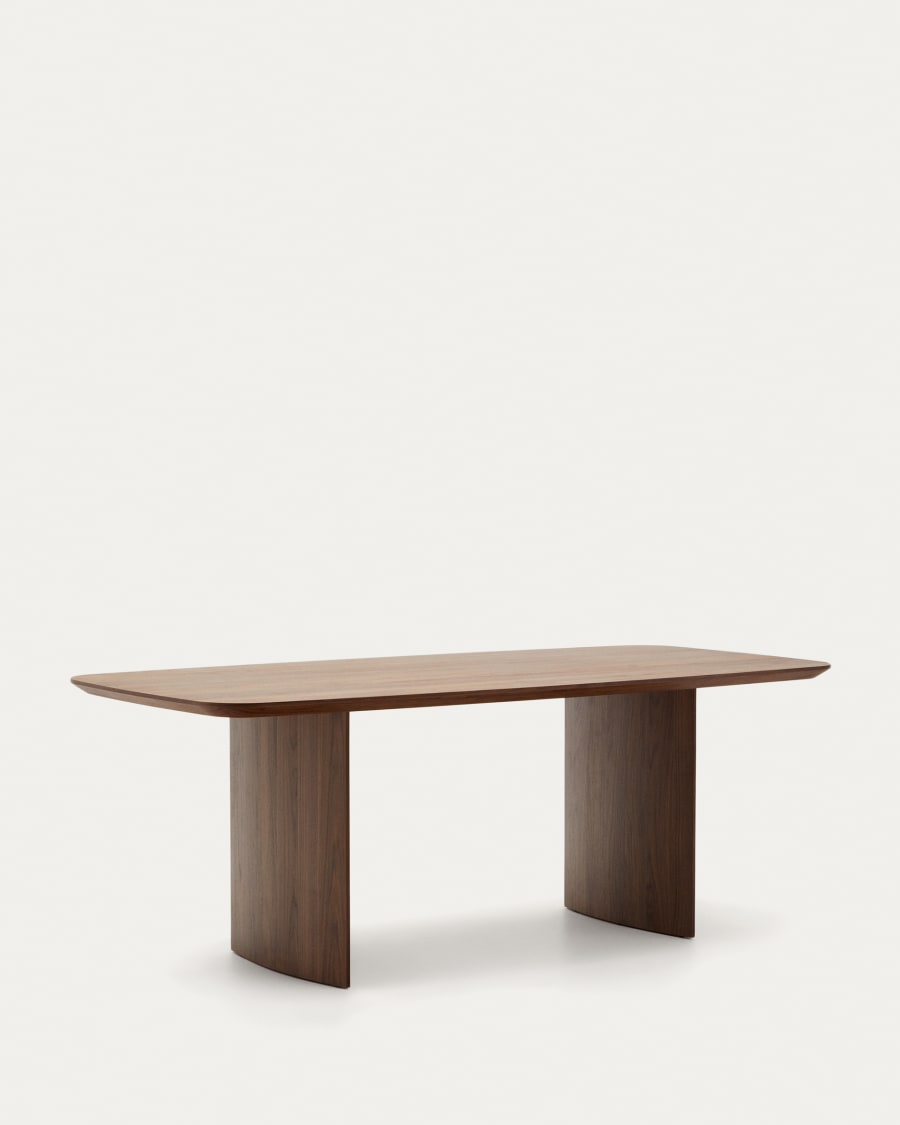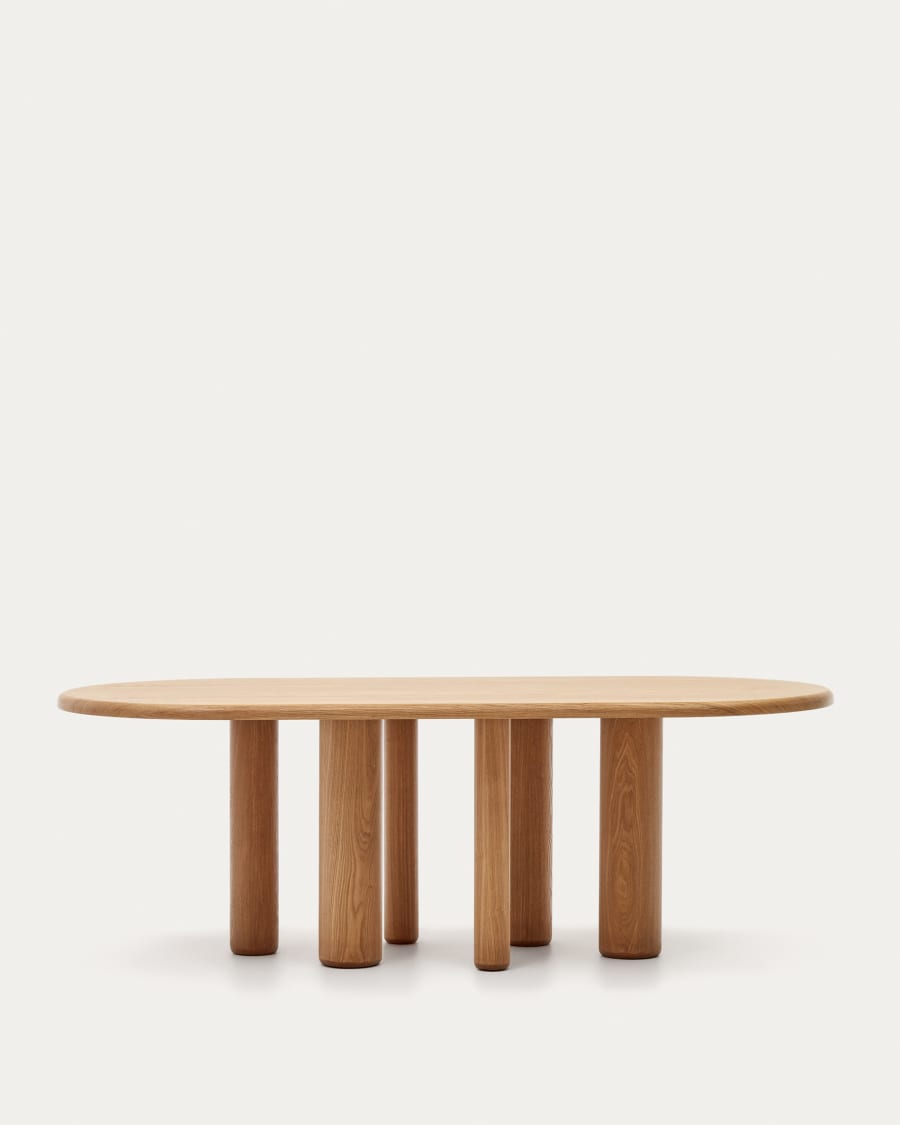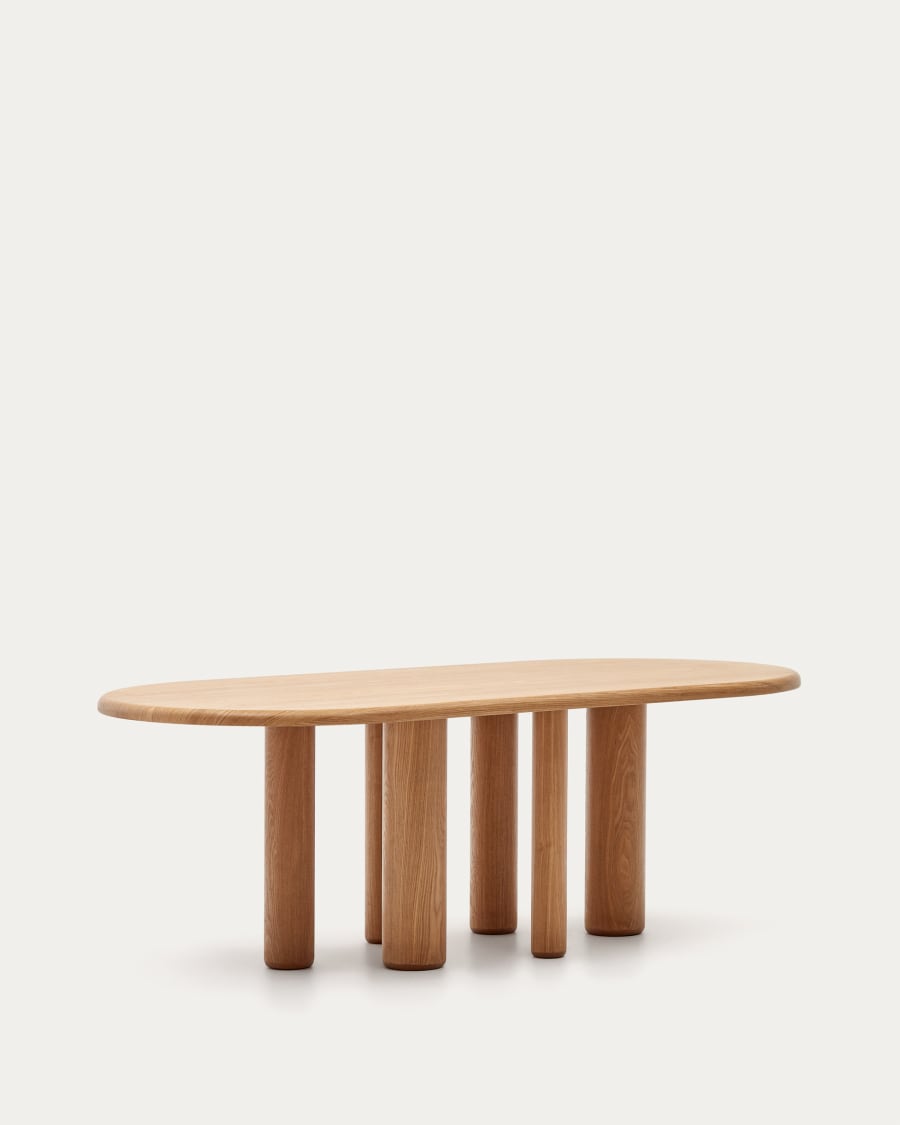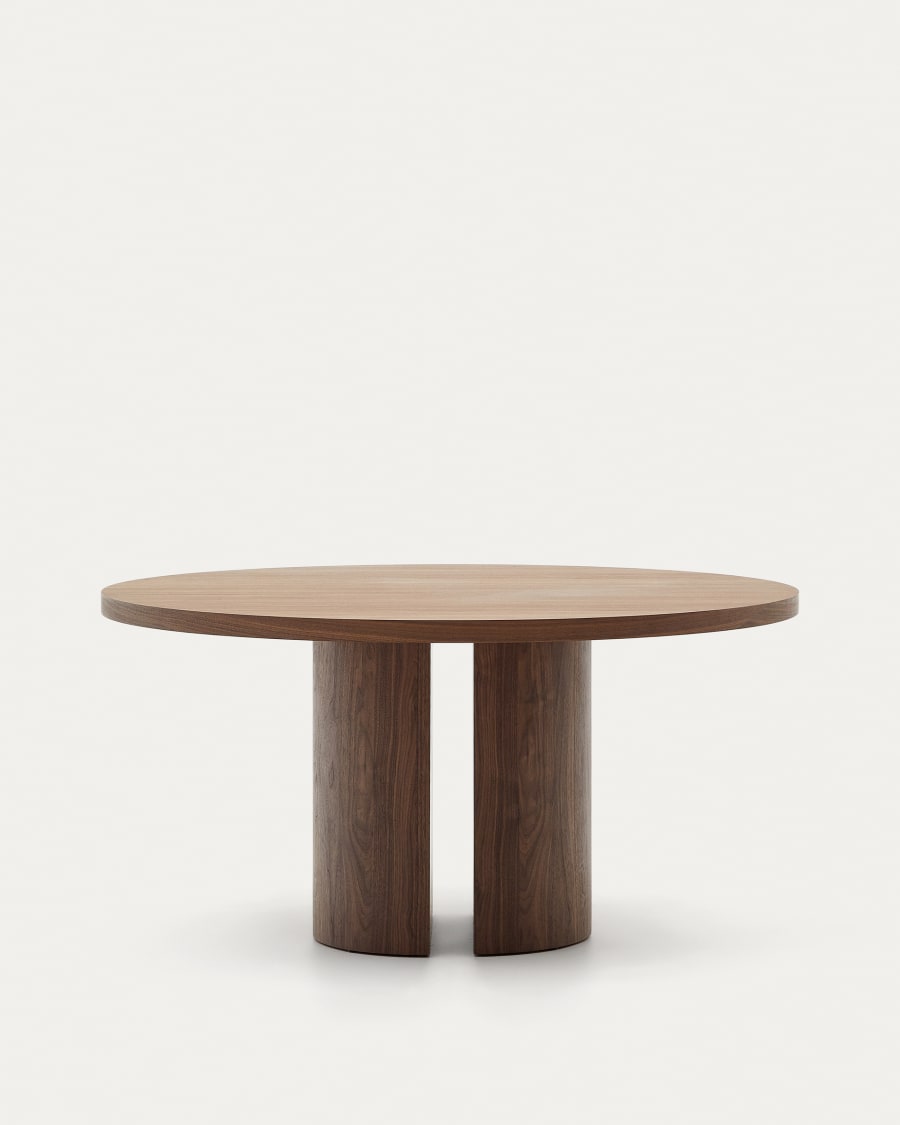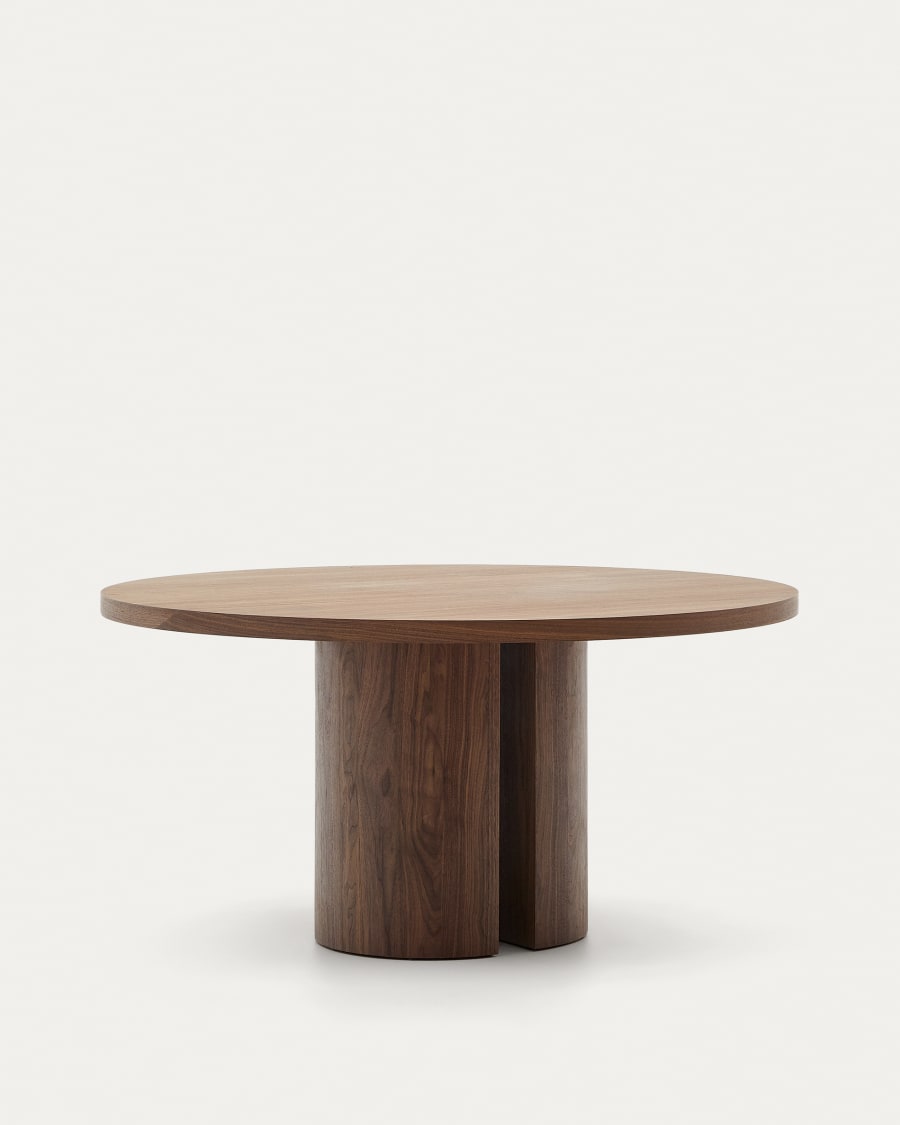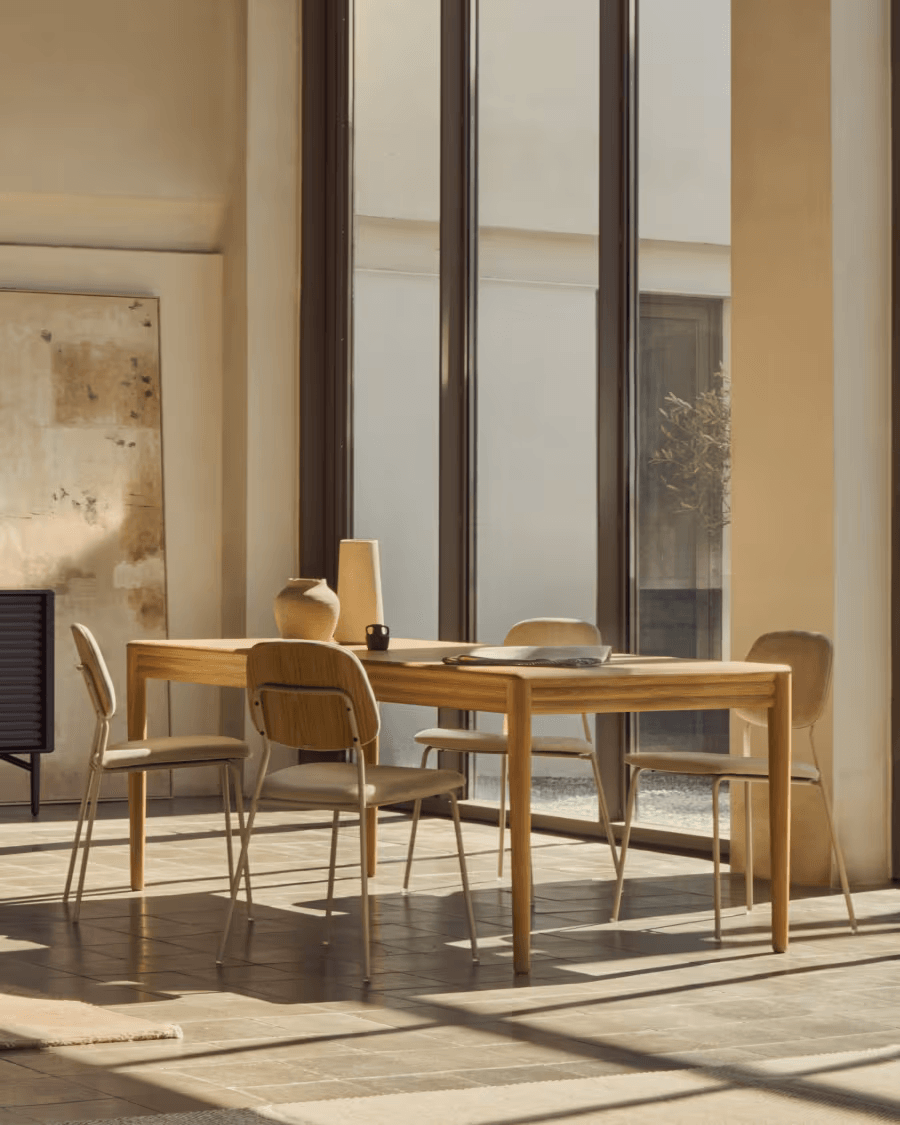- Home
- Japandi Dining Tables
Japandi Dining Tables
Japandi Dining Tables: Minimalist Design & Natural Warmth
What makes Japandi dining tables a sanctuary for modern living? Their design merges Japanese minimalism’s focus on simplicity and Scandinavian functionality’s emphasis on practicality, creating spaces that feel both calming and efficient. These tables prioritize clean lines, uncluttered forms, and natural materials to balance aesthetics with usability. By avoiding excessive ornamentation, they become timeless fixtures in any home.
Key principles include embracing imperfection, celebrating organic textures, and ensuring every element serves a purpose. For instance, a table’s wooden surface might highlight grain patterns, while its extendable feature accommodates larger gatherings without compromising elegance. This philosophy ensures each piece feels intentional, fostering mindfulness in everyday dining experiences.
Minimalism Meets Practicality
Japandi tables strip away superfluous details, focusing on sleek silhouettes and functional features. A rectangular oak table might extend to seat eight, blending Scandinavian adaptability with Japanese restraint. This approach avoids visual overload, allowing the table to anchor a room without overwhelming it. Every joint, edge, and surface is crafted to serve both form and function seamlessly.
Natural Materials And Textures
Why do Japandi dining tables feel so grounding? They harness the warmth of natural materials like oak, acacia, and bamboo. These woods retain their organic character—subtle knots, uneven grains—to celebrate nature’s imperfections. Pairing light Scandinavian woods with darker Japanese accents adds depth, while tactile surfaces like linen table runners or stone coasters enhance sensory appeal.
The Role Of Wood In Japandi Aesthetics
Wood is the cornerstone of Japandi design. Light Scandinavian woods like pine contrast with rich, dark acacia for visual harmony. For example, a table might combine a bleached oak tabletop with smoked legs, echoing Japan’s wabi-sabi appreciation for imperfection. This duality bridges the two cultures, offering warmth and durability in equal measure.
Neutral Color Palettes
How do Japandi tables create a tranquil ambiance? Neutral tones—creams, soft grays, and earthy beiges—dominate, reflecting light to open spaces. These hues mimic natural elements, fostering a connection to the outdoors. Accents like muted sage napkins or charcoal ceramic vases introduce subtle contrast without disrupting the calm. The result? A dining area that feels expansive, even in compact apartments.
Why Neutrals Enhance Serenity
Neutral shades minimize sensory overload, a core tenet of both Japanese and Scandinavian design. A pale linen tablecloth paired with matte white plates exemplifies this. Such choices ensure the table itself becomes the focal point, its natural textures and clean lines speaking volumes without competing with bold colors.
Serene Dining Spaces
Imagine a dining room where every detail invites mindfulness. Japandi tables achieve this by curating uncluttered layouts and soft lighting. A pendant lamp with a paper shade diffuses light gently, while minimalist chairs with low profiles echo the table’s understated elegance. Even decorative elements—a single orchid, a hand-thrown ceramic vase—serve dual purposes: beauty and simplicity.
Case Study: A Japandi Dining Nook
Consider a small urban apartment. A round Japandi table in bleached ash seats four, its curved edges softening the room’s angular architecture. Underfoot, a jute rug adds texture; above, a bamboo pendant light casts a warm glow. This setup proves serenity thrives in simplicity, proving even modest spaces can feel expansive and inviting.
Functional Elegance
Can a table be both a work of art and a daily-use staple? Japandi designs say yes. A Bok Extendable Table (from £1,799) adjusts length effortlessly, while a Corto Round Table (£2,929) marries solid oak with a sculptural base. These pieces avoid sacrificing practicality for beauty—every drawer, extension, or carved detail has a purpose, ensuring the table evolves with its owners’ needs.
By integrating hidden storage or convertible designs, Japandi tables adapt to modern lifestyles. A dining surface becomes a workspace by day, returning to its minimalist state with a tidy. This adaptability ensures they remain central to life’s moments, both grand and mundane.
Why invest in a Japandi dining table? Beyond aesthetics, these pieces offer lasting value. Their durability stems from premium materials like solid wood and marble, promising decades of use. While initial costs range from £1,119 to £8,930, their timeless appeal outlasts trends, avoiding the waste of disposable furniture. For eco-conscious buyers, this fusion of sustainability and style delivers unmatched long-term satisfaction.
What Is A Japandi Dining Table?
A Japandi dining table merges the serene simplicity of Japanese minimalism with the functional warmth of Scandinavian design. Rooted in the Japanese "wabi-sabi" philosophy—celebrating imperfection and natural beauty—these tables emphasize clean lines, uncluttered forms, and a focus on intentional living. The Scandinavian influence, inspired by "hygge," adds a layer of coziness through natural materials like light wood tones, ensuring the table is both aesthetically restrained and deeply inviting.
Scandinavian functionality shapes the table’s practicality, blending warmth with usability. Materials such as solid oak, acacia, or light pine dominate, often paired with tactile textures like linen or rattan accents. The design avoids excessive ornamentation, prioritizing ergonomic shapes and durable craftsmanship. A Japandi table might feature a smooth, pale wooden surface atop subtly curved legs, balancing minimalism with subtle organic curves that echo nature’s irregularity—a nod to Japanese aesthetics—while maintaining the Scandinavian emphasis on comfort and usability.
The result is a dining table that transcends mere furniture, becoming a centerpiece for mindful living. Neutral palettes—whites, soft grays, and earthy beiges—enhance the calming atmosphere. Rounded edges and organic shapes soften the minimalism, creating a space that feels both modern and approachable. By harmonizing balance, simplicity, and warmth, Japandi tables foster serene dining experiences, turning meals into moments of connection. This fusion of East and North offers a timeless antidote to chaotic modern life, where form and function coexist without compromise.
How to choose your japandi dining table
Selecting the right material and finish
Natural materials define Japandi's soul. Light woods like oak, ash, and pine create airy Scandinavian vibes, pairing perfectly with modern interiors seeking warmth without heaviness. Oak surfaces, found in 54% of Japandi collections, combine durability with sustainable sourcing. Dark woods such as walnut add Japanese-inspired sophistication, with acacia offering exceptional scratch resistance. Stone surfaces like travertine or ceramic add contemporary edge - 63% of Japandi collections feature these hybrid combinations.
- Light woods (Oak, Ash, Pine): For a bright, airy, and classic Scandinavian feel. Highly durable and versatile.
- Dark woods (Walnut, Acacia): To introduce depth, contrast, and a touch of Japanese elegance.
- Stone & Ceramic (Travertine, Sintered Stone): Offer a modern, textured look with excellent durability.
- Live Edge Wood: For a unique, organic shape that celebrates natural imperfection.
Whitewash finishes preserve wood's texture while softening its visual weight. Many manufacturers now use sustainable sourcing practices to align with eco-conscious values, with 41% offering FSC-certified options. For minimalist interiors, 72% of award-winning designs pair travertine surfaces with matte wood finishes to create balanced tactile experiences.
Finding the perfect shape and size
| Shape | Best for | Seating Feel | Space Efficiency |
|---|---|---|---|
| Round | Small spaces & conversation | Intimate & communal | Good for tight corners |
| Oval | Balancing conversation & seating capacity | Flexible & social | Softer footprint than a rectangle |
| Rectangular | Large rooms & hosting many guests | Formal & structured | Maximizes seating along its length |
Measure carefully: Leave 90-100cm clearance around tables for movement. Extensible models transform from 4 to 6-seater configurations, solving spatial challenges in compact areas. Rectangular tables at 160cm suit 4 people, while 220cm versions accommodate 8 guests. For optimal comfort, interior designers recommend 61cm of table length per person - this spacing appears in 85% of award-winning dining spaces.
Considering the base design and functionality
Base design reveals character: 67% of Japandi tables use pedestal bases for sculptural elegance and legroom. Crossed steel bases add contemporary flair, while four-leg wood constructions maintain timeless appeal. The Jaylen Extendable Dining Table demonstrates innovation with a 30mm thick oak top and geometric steel base in matte black or brushed brass.
For dynamic spaces, 42% of modern collections feature extendable mechanisms. The Bok Extendable Dining Table morphs from 160cm round to 220cm oval to accommodate 6 people. Some models combine pedestal bases with hidden storage, merging Japanese space-saving with Nordic practicality. For minimalist purists, 31% of designs use near-invisible steel supports that maintain structural integrity through clever engineering.
How To Style Your Japandi Dining Area
Chairs should complement your Japandi table. Opt for wooden frames in light or medium tones like oak or ash. For comfort, choose natural textiles—linen, boucle, or wool in off-white, beige, or muted grey. Mix materials: a rattan seat paired with a carved wooden backrest adds subtle contrast while staying within the aesthetic. Prioritize tapered or curved legs for ergonomic Scandinavian comfort and Japanese organic curves.
Ambiance is built through soft lighting. A paper lantern-style pendant in pale linen or a minimalist oak wood lamp creates diffused, warm glows. Paint walls in neutral tones like warm white or greige to amplify natural light. Add woven jute curtains or linen drapes for texture without overwhelming the space. For flooring, opt for seagrass rugs and a single potted plant like a monstera to enhance organic textures.
Accessories must follow the “less is more” principle. A minimalist ceramic vase with a single foraged branch or a hand-thrown stoneware bowl becomes the focal point. Keep surfaces clear to let the table’s grain and craftsmanship shine:
- Choose minimalist dinnerware: Sage or terracotta ceramic plates and bowls in earthy tones. Matte finishes enhance the tactile feel.
- Add natural textiles: Use textured linen napkins or a simple undyed cotton runner instead of a full tablecloth. Subtle textures contrast with smooth wood.
- Incorporate a single, striking element: A ceramic vase with a single branch (ikebana-inspired) or a handcrafted bowl. Place the vase off-center to reflect wabi-sabi's embrace of organic imperfection.
- Keep it clutter-free: The surface should remain clear to emphasize the table's form. Store cutlery or condiments in a wooden tray or ceramic dishes, blending function with design.
Care And Maintenance For Your Japandi Table
Preserving a Japandi dining table begins with daily habits that honor its blend of Japanese minimalism and Scandinavian functionality. Always use coasters and placemats to protect surfaces from heat and scratches. Natural woods like oak or acacia, common in Japandi designs, are prone to water rings—wipe spills immediately with a soft cloth. Dust regularly with a microfiber cloth to avoid micro-abrasions from grit, ensuring the table’s serene, uncluttered look endures.
- Do: Dust regularly with a soft, dry cloth to prevent micro-abrasions.
- Do: Use coasters and placemats to protect natural textures from heat and scratches.
- Don't: Use abrasive sponges or harsh chemicals, which can strip protective layers or dull finishes.
- Don't: Let spills sit, as moisture can warp wood or stain stone surfaces like travertin.
Material-specific care enhances durability. For solid wood or veneer tables, clean with a damp cloth and mild soap, avoiding harsh products that degrade finishes. Oiled surfaces need reapplication every few months for moisture resistance, while varnished ones require gentle cleaning to avoid scratches. Stone, ceramic, or stoneware tops thrive with pH-neutral cleaners—like a mix of water and mild dish soap. Always dry surfaces post-cleaning and use trivets for hot items to align with Japandi’s functional elegance. For stone surfaces like travertin, occasional sealing prevents stains, preserving their timeless harmony and natural textures.
FAQ
What defines a Japandi dining table's design philosophy?
A Japandi dining table merges Japanese minimalism with Scandinavian functionality, emphasizing clean lines, natural materials, and serene aesthetics. Key elements include light or dark woods like oak and walnut, matte finishes, and intentional simplicity that balances warmth with practicality. The design prioritizes durability and timeless appeal, creating a calming focal point for modern living spaces.
How do Japandi tables harmonize Japanese and Scandinavian influences?
Japandi tables fuse Zen-inspired simplicity (Japanese) with Nordic hygge (Scandinavian). Japanese elements contribute sleek silhouettes and reverence for organic imperfections (e.g., live-edge wood), while Scandinavian design adds warmth through light woods, soft curves, and functional details like extendable mechanisms. This synergy results in tables that feel both refined and inviting, blending order with comfort.
Are Japandi dining tables suitable for compact dining areas?
Absolutely! Japandi tables excel in small spaces due to their streamlined forms. Round or oval shapes optimize flow in tight rooms, while pedestal bases offer legroom. Materials like light wood and neutral ceramics enhance openness, and minimalist styling prevents visual clutter. Many models feature extendable options, ensuring flexibility without sacrificing elegance in compact settings.
What materials are most common—and most durable—for Japandi tables?
Popular choices include solid light woods (ash, pine) for airy Scandinavian warmth, dark woods (walnut, acacia) for depth, and stone-ceramic composites (travertine, sintered stone) for modern resilience. Pedestal bases in matte black metal or concrete add industrial contrast. For longevity, sealed wood or stone surfaces resist wear, while natural finishes like whitewash or oil enhance organic beauty without compromising integrity.
How should I style a Japandi table to enhance its aesthetic?
Adopt a "less is more" approach. Use minimalist ceramics in earthy tones, linen napkins, and a single handcrafted vase with dried grasses or a bonsai for subtle texture. Keep surfaces clutter-free to highlight the table’s craftsmanship. Pair with pendant lights in paper or linen shades for soft illumination, and anchor the space with neutral-toned chairs to maintain visual harmony.
